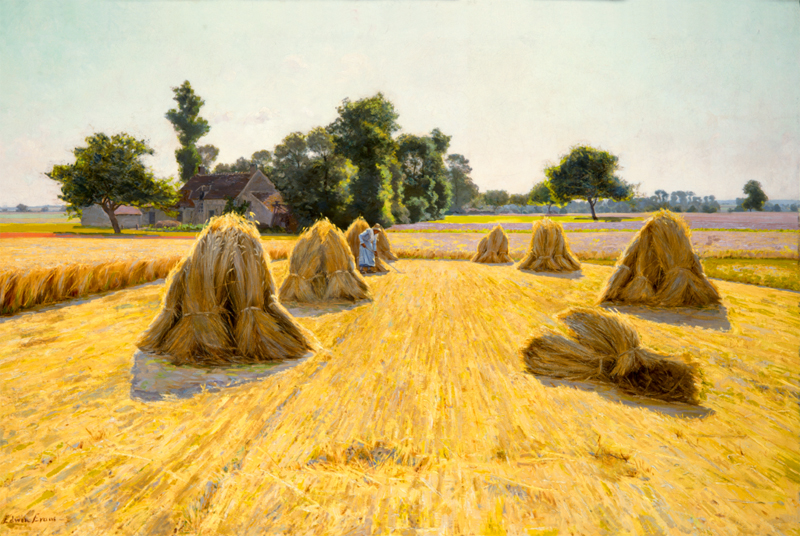
Grain Fields
Edwin Evans, 1890
My dear friends,
In our journey through Lent, we are reminded of the transient nature of life and the spiritual wisdom that arises from this understanding. As Jesus prepares for his ultimate sacrifice, he presents us with a powerful metaphor of a grain of wheat that must die to bear fruit, urging us to embrace the reality of impermanence to realize the fullness of life.
for the Son of Man to be glorified.
Very truly, I tell you,
unless a grain of wheat
falls into the earth and dies,
it remains just a single grain;
but if it dies, it bears much fruit."
- John 12:23-24
This passage illuminates the transformative power of accepting impermanence. Like the grain of wheat, we are called to let go of our individual, self-centered existence to cultivate a life that bears much fruit. This dying to oneself is not a literal death but a spiritual rebirth, where understanding the transient nature of all things fosters a deep sense of compassionate wisdom.
and those who hate their life in this world will keep it for eternal life."
- John 12:25
Here, Jesus teaches us the paradox of life and death. To cling to life, as we know it, is to lose it. Yet, by surrendering our attachment to this temporal existence, we gain a life sub specie aeternitatis. This profound truth resonates with the understanding that embracing impermanence leads to compassionate wisdom, guiding us to live in a way that is fully present and deeply caring for others.
Whoever serves me, the Father will honor."
- John 12:26
To serve and follow Jesus is to walk the path of selfless action, where the understanding of no-self (anatta) and the impermanence of life (anicca) become the bedrock of our service to others. In this, we find honor not in worldly accolades but in the spiritual fulfillment that comes from genuine compassion and wisdom.
And what should I say--' Father, save me from this hour'?
No, it is for this reason that I have come to this hour."
- John 12:27
In his moment of great anguish, Jesus embodies the ultimate acceptance of impermanence, recognizing his suffering as a necessary passage to fulfillment. This acceptance is not resignation but a profound act of courage that transforms understanding into compassionate action, laying the groundwork for salvation.
As we reflect on Jesus' teachings and his example, let us embrace the wisdom of impermanence, not as a source of despair, but as a gateway to compassionate wisdom. By dying to ourselves, we open our hearts to the boundless compassion that unites us all, bearing fruit in a world in need of love and understanding.